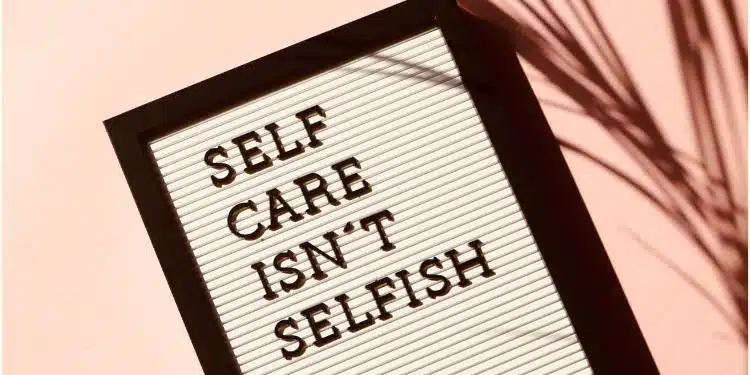by Ellen Blake
I tend to take my commitments seriously, but lately, it feels like I am in the minority. Sure, there are times when something comes up that makes canceling unavoidable. Illness, car problems, and family emergencies are all good reasons. We’ve all had to cancel at the last minute at one time or another. But what about the people who decide at the last minute they just don’t feel like going out? Or worse, something better comes up? Then, there are those who habitually overcommit; they truly intend to show, thinking they can squeeze everything in, without realizing their good intentions are simply not realistic.
While canceling once in a while is no big deal, doing so often is not cool. Do you think about how it makes the other people involved feel? Or how much effort they put into planning the event? And if you are someone who cancels often, and not always due to an emergency, how late is too late to let the host know?
Is Canceling at the Last Minute the New Fashionably Late?
Canceling at the last minute seems to be the new norm for a lot of people. I believe this trend stems from our behavior during the pandemic. During this time, events of all sizes were frequently canceled and rescheduled, sometimes more than once. When the events did take place, well-meaning people often canceled at the last minute if they either contracted the virus or were exposed to it to avoid infecting others. We all learned to be flexible out of necessity. Covid made it more acceptable to cancel at the last minute whether it was for crowds, illness, or simply unfavorable logistics. Fast forward a couple of years, and though Covid is still with us, we are no longer in a pandemic situation. Has the attitude that it’s OK to cancel at the last minute remained? Etiquette experts seem to think so.

Why Do People Cancel Plans?
People cancel plans for all sorts of reasons that do not qualify as emergencies. This behavior is inconsiderate and rude, at least in my opinion. I’m baffled by those who cancel often and seem to feel their reasons are justified.
For example, a self-described introvert told me recently she often cancels plans for “self-care”. She intends to follow through when she accepts the invitation, but the day comes and she just doesn’t feel like being with people. It’s exhausting and overwhelming for her, and she just wants to stay home. I get that, but why not just say no? I’m all for self-care, but not at someone else’s expense. It’s better to say no in advance and then if you find you do want to go to the event, call and ask if there’s room for you. Unless it’s a strict RSVP event with seats for only a limited number of people, chances are the host will be pleasantly surprised by your change of heart.
Another example involves a friend who is part of a monthly discussion group I attend. The group leader clearly explained the commitment when establishing the group and inviting people to join. This participant, and I use that term loosely, accepted the invitation, but rarely showed up to the meetings. Her reasons range from too tired, too busy, she forgot, or another “important” event came up. The group is a small one, and every voice is important. When people don’t show up, it changes the dynamic of the group. If someone misses 75% of the meetings, it makes sense for them to withdraw from the group, at least temporarily, out of consideration for the others. I am not sure if she doesn’t back out simply to avoid having what she might consider a confrontation – some people don’t like to say no – or if she truly wants to participate and doesn’t realize how her behavior affects the group as a whole.
Finally, here’s another, more extreme, situation I encountered a while back. A work colleague asked me to meet him thirty minutes before a program to help set-up for the speakers. He had the key to let us in the room but didn’t show, leaving me standing outside for a half-hour. Upon arrival, he said he overslept. He did not offer an apology, just an excuse. It was unprofessional and thoughtless, but I let it go; after all, things happen, and everyone deserves a second chance. For the next event in this same speaker series, he again requested I meet him early to help set up. Again, he left me waiting outside the room for thirty minutes. As he offered no explanation or apology, I asked what happened. He became shockingly defensive and erupted in anger, stating he was busy doing other “essential” things for the program. How dare I challenge him – those were his words! I assume he forgot and was embarrassed. The situation could have been quickly diffused if he owned up to his mistake and apologized rather than turning the blame on me. The next time he asked, I of course said no, which took him by surprise. He either had no recollection of the previous two times he stood me up, or he didn’t care. He was above the expectations imposed on others, a classic sign of narcissistic behavior. This situation is an extreme example and I probably don’t need to tell you that that I completely ended both our working and personal relationship soon after.
So, How Late is Too Late to Cancel Plans?
The appropriateness of canceling plans and how late is considered “too late” depends on various factors, including the nature of the plans, the reason for canceling, and the expectations of the people involved. Here are some general guidelines:
Cancel as early as possible
It’s always considerate to cancel plans as soon as you know you won’t be able to attend. The more notice you can provide, the better, as it allows others to make alternative arrangements or adjust their plans.
Emergencies or unexpected situations
If you have a legitimate emergency or unexpected situation, people are generally understanding. In these cases, you must communicate the situation as soon as possible and explain the circumstances. Of course, the definition of an emergency is somewhat subjective; a car accident or illness certainly qualifies, while a casual last-minute invitation to another friend’s surprise birthday party does not.
Social or professional commitments
The type of event influences how late is too late. For casual plans, such as a work happy hour, shorter notice is usually acceptable. However, canceling last minute for important or formal commitments is in poor taste unless you have an emergency, Keep in mind that if you are canceling for an event such as a wedding without significant notice, the host usually must still pay for your meal.
Consistency and frequency
If canceling plans becomes a habit, it can strain relationships. Consistently bailing at the last minute may lead others to question your reliability and give the message that their event or time is not a priority for you.
Consider the effort involved
If your host puts a significant amount of effort or resources into the plans, canceling at the last minute is rude and often disruptive. If you ever hosted a sit-down dinner party where you spent days cooking and setting up tables and chairs where multiple people canceled at the last minute, you understand the disappointment firsthand.

Etiquette for Canceling Last Minute
As per etiquette expert Robin Marriott from Manners Mean Money,
“If someone needs to cancel at the last minute, first and foremost, make sure it’s a legit reason and not because you are wanting to take advantage of a better offer. You never want to be caught out with others while insulting the original person that invited you.”
That said, regardless of the timing, clear and honest communication is crucial. Explain the situation, apologize for any inconvenience, and express your regret about canceling. Here are some guidelines from Robin about the proper etiquette for canceling at the last minute.
Call first
Always try to call if possible so the person who invited you can hear your disappointment in your voice. That way their response is immediate and you know they received your cancellation.
Leave a message and then text if you get voicemail
If your call goes to voicemail, leave a message and then follow up with a quick text stating you tried calling and you are very sorry that you have to decline at the last moment. Extend an invitation to get together another time to catch up if appropriate.
Don’t just text
If you simply text, which many consider cowardly, your host may or may not see your text while getting ready for your event. They may not even have cell reception if waiting at a restaurant. A voicemail followed by a text leaves a conversation trail for your host with a time stamp so your host knows you sincerely tried to reach them.
What to Say When Canceling Plans
You want to be authentic and considerate when canceling plans, though what you say depends somewhat on the relationship with the host, the specific situation, and the timing. A statement expressing your regrets might sound like this:
“I’m sorry to cancel at the last minute. I can’t make it out tonight, but I do want to see you. Can we find another time to get together?” or “I know I committed to this event earlier but unfortunately I’m going to be able to make it. I’m sorry for canceling last minute.”
If you are very close to the host on whom you are canceling, you might be comfortable being completely transparent about your reasons and hope they understand. For example, you might say,
“I am really drained and don’t feel like going out tonight. Can I have a raincheck? I’m available on these dates and times.”
Keep in mind that there are also things not to say or do when canceling plans. Here are some examples.
Don’t provide an untrue story
While you don’t need to share all the details of the reason for your cancelation, you also don’t want to make up a story. Do not fabricate a sudden illness, sick relatives, or a work deadline if untrue. You may run into the host at some point and run the risk of them asking about the reason you gave for canceling. You may not remember what you told them and that’s an awkward place to be.
Avoid setting unrealistic expectations
If the plans are ones you don’t intend to reschedule, don’t cancel by telling the host that you can’t make it “tonight”. They may respond with “How about next week?”. It’s uncomfortable to cancel without saying something like “maybe next time” to soften the blow, but you are setting yourself up to have the same conversation later. It’s better to be clear and kind up front and not make vague promises. You might say something like, “Thank you for the invitation, but I’m sorry I can’t go. Have a great time!”.
Resist giving disingenuous apologies
Some of us over-apologize when in an uncomfortable conversation about canceling plans at the last minute. Giving an effusive and unclear apology can encourage the other person to try to convince you to come and/or put them in a position where they feel they need to comfort you. Neither scenario is a comfortable one.

How to Avoid Canceling Plans at the Last Minute
Sometimes canceling at the last minute is simply unavoidable. However, often that’s not the case.
When I was younger, I used to love to fill my calendar weeks in advance. I had more energy then, and simply enjoyed being out and about. As I grew older, I started to dread the events on my jam-packed calendar and felt I needed more downtime. Planning was fun, but following through was less so. I love being included and have FOMO (fear of missing out), but my need for self-care became more of a priority. Time is precious and we all have a right to spend ours in a way that makes us happy. Now that I schedule events more intentionally and no longer overcommit, I rarely cancel plans anymore.
Think about it. If you are someone who tends to cancel plans often at the last minute, try to determine why. You may be someone who overcommits as I did. Or perhaps you are a people pleaser, uncomfortable with setting boundaries or saying no. While canceling plans at the last minute is disrespectful, most of us understand it is generally not done with malice. However, you may find that if you make canceling a habit, people may stop extending invitations to you.
The Bottom Line
At the end of the day, there are no strict rules about how late is too late to cancel. It depends on the specific circumstances and your relationship with the host. Determine what works best in the situation and be respectful, considerate, and communicative to avoid damaging relationships.
Your thoughts? Please share them in the comment section below.










